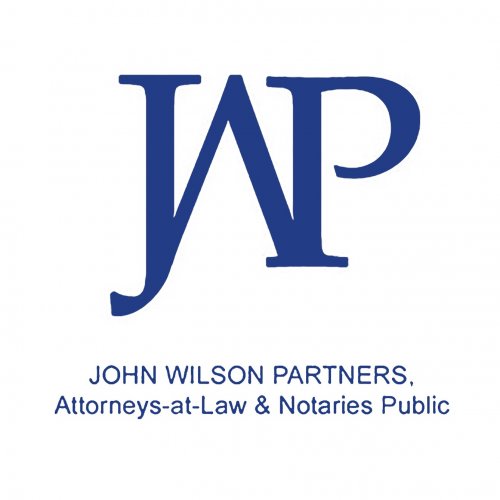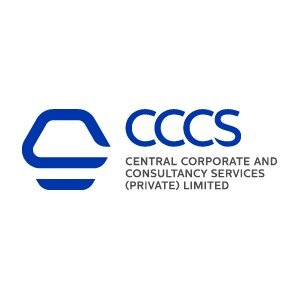Best Public-Private Partnerships (PPP) Lawyers in Colombo
Share your needs with us, get contacted by law firms.
Free. Takes 2 min.
List of the best lawyers in Colombo, Sri Lanka
About Public-Private Partnerships (PPP) Law in Colombo, Sri Lanka
Public-Private Partnerships (PPPs) are collaborative ventures between government entities and private sector companies to finance, build, and operate projects such as infrastructure, utilities, and public services. In Colombo, PPPs have emerged as an effective tool to bridge the gap in public infrastructure development, leveraging both public sector oversight and private sector efficiencies. PPP law in Sri Lanka governs how these collaborations are structured, executed, and managed, setting clear guidelines to balance risk, ensure value for money, and protect the interests of all stakeholders involved.
Why You May Need a Lawyer
PPPs are complex, involving multiple stakeholders, significant investments, and long-term commitments. Here are some common situations where seeking legal advice is highly recommended:
- Understanding and negotiating the terms of a PPP agreement or concession
- Evaluating the legal and regulatory environment for a proposed PPP project
- Managing disputes or breaches of contract between parties
- Dealing with government procurement processes and bid submissions
- Ensuring compliance with local laws, regulations, and international best practices
- Securing permits, licenses, and approvals required for project implementation
- Structuring and conducting due diligence on finance and investment arrangements
- Advising on risk allocation between the public and private partners
- Assisting with public consultations and addressing environmental and social concerns
- Facilitating the exit or transfer of PPP projects at the end of their lifecycle
Given these complexities, a legal expert can safeguard your interests, prevent expensive mistakes, and help ensure your project’s success.
Local Laws Overview
Sri Lanka has a developing legal framework for PPPs, with Colombo serving as a key hub for such collaboration. Key aspects of local laws relevant to PPPs include:
- Public Contracts and Procurement: The government has strict procedures for the procurement of partners, typically through competitive bidding. The Procurement Guidelines issued by the National Procurement Commission and other relevant circulars apply to most PPPs.
- PPP National Policy: Sri Lanka’s PPP policy sets out the government’s approach to structuring, tendering, and managing PPP projects, aiming for transparency and fair risk-sharing.
- Special Legislation: In some instances, specific laws such as the Board of Investment (BOI) Act, the Urban Development Authority (UDA) Act, and sectoral regulations (for example, in transport or energy) may apply.
- Concession Agreements: Detailed contracts outline the rights and responsibilities of both parties. These contracts are governed by local contract law, primarily the Contracts Ordinance.
- Land Use and Environmental Laws: Approvals related to land acquisition, land use, and environmental impact assessments (EIAs) are essential elements of most PPP projects.
- Investment and Tax Incentives: The BOI and other agencies offer incentives to PPP investors, subject to compliance with national laws and investment regulations.
- Dispute Resolution: Disputes are often resolved via negotiation, arbitration (frequently under international rules), or recourse through Sri Lankan courts.
Frequently Asked Questions
What is a Public-Private Partnership (PPP)?
A PPP is a contractual agreement between a government agency and a private sector party for the purpose of providing public infrastructure or services with shared risks and rewards.
Are PPPs common in Colombo?
Yes, Colombo is a focal point for large-scale infrastructure and service delivery PPPs, especially in sectors like transport, energy, water, and real estate.
What laws govern PPPs in Colombo?
PPPs are primarily regulated through public procurement laws, the PPP National Policy, relevant sectoral laws, the Contracts Ordinance, and guidelines by regulatory authorities.
Can foreign companies participate in PPPs in Sri Lanka?
Yes, foreign companies can participate, often in partnership with local firms, subject to compliance with foreign investment regulations and sectoral restrictions.
How are PPP projects awarded?
Most PPP projects are awarded through a transparent bidding process, following government procurement guidelines and rigorous evaluation of technical and financial proposals.
What are the main risks associated with PPPs?
Key risks include political or regulatory changes, financial risks, construction delays, demand shortfalls, and disputes regarding contract interpretation or performance.
How are disputes resolved in PPPs?
Disputes are generally resolved through negotiation, mediation, or arbitration. Many PPP contracts specify arbitration under either local or international rules.
What incentives are available for PPP investors?
Investors may be eligible for tax benefits, customs concessions, and other incentives offered by the Board of Investment or relevant government agencies, provided they meet the required criteria.
Can the terms of a PPP contract be modified?
Contract modifications are possible, but usually require mutual agreement and compliance with legal requirements to ensure transparency and fairness.
Do PPP projects need environmental approval?
Almost all PPP projects, especially those with environmental impact, must undergo an Environmental Impact Assessment (EIA) and obtain necessary environmental approvals.
Additional Resources
Individuals and businesses interested in PPPs in Colombo can consult the following:
- Ministry of Finance - PPP Unit: The central agency for PPP policy and project facilitation.
- Board of Investment of Sri Lanka (BOI): For investment approvals and incentives.
- Urban Development Authority (UDA): For projects related to urban development and land use.
- Public Utilities Commission of Sri Lanka (PUCSL): For PPPs in the utility sector.
- Ministry of Megapolis and Western Development: For major urban infrastructure projects in Colombo.
- National Procurement Commission: For guidelines on public procurement and competitive tendering.
- Sri Lanka Law Reports and Department of Government Printing: For legislative texts and official publications.
- Relevant chambers of commerce and industry associations for networking and updates on PPP opportunities.
Next Steps
If you think you need legal assistance regarding a PPP in Colombo, Sri Lanka, consider the following steps:
- Identify the specific PPP opportunity or issue you are interested in or affected by.
- Gather any documents, contracts, or correspondence related to your PPP matter.
- Research and list potential law firms or legal advisors with expertise in PPP law in Colombo.
- Schedule a consultation to discuss your case and obtain a preliminary legal opinion.
- Ask about the legal process, timings, expected costs, and possible outcomes.
- Work closely with your lawyer to ensure due diligence, compliance, and proper documentation throughout the PPP process.
- If your concerns involve dispute resolution, procurement irregularities, or project implementation challenges, seek immediate legal advice to avoid escalation.
The PPP landscape in Colombo is evolving rapidly, and legal guidance is essential for navigating contractual, regulatory, and operational complexities. Consult a qualified legal professional to safeguard your interests and set your project on the path to success.
Lawzana helps you find the best lawyers and law firms in Colombo through a curated and pre-screened list of qualified legal professionals. Our platform offers rankings and detailed profiles of attorneys and law firms, allowing you to compare based on practice areas, including Public-Private Partnerships (PPP), experience, and client feedback.
Each profile includes a description of the firm's areas of practice, client reviews, team members and partners, year of establishment, spoken languages, office locations, contact information, social media presence, and any published articles or resources. Most firms on our platform speak English and are experienced in both local and international legal matters.
Get a quote from top-rated law firms in Colombo, Sri Lanka — quickly, securely, and without unnecessary hassle.
Disclaimer:
The information provided on this page is for general informational purposes only and does not constitute legal advice. While we strive to ensure the accuracy and relevance of the content, legal information may change over time, and interpretations of the law can vary. You should always consult with a qualified legal professional for advice specific to your situation.
We disclaim all liability for actions taken or not taken based on the content of this page. If you believe any information is incorrect or outdated, please contact us, and we will review and update it where appropriate.

















